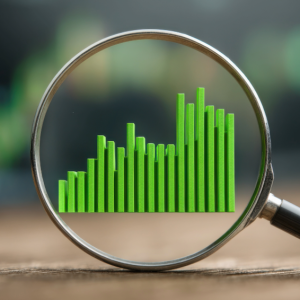Understanding the Language of Collectibles: Key Terms Every Collector Should Know
The world of collectibles is a rich and fascinating realm, but for newcomers and seasoned enthusiasts alike, the specialized terminology can sometimes feel like learning a new language. Understanding these terms isn’t just about sounding knowledgeable—it’s an essential step in navigating the market, making informed decisions, and connecting with fellow collectors. Here’s an in-depth guide to the key terms every collector should know, along with their meanings and significance.
1. Provenance
- Definition: The documented history of a collectible, tracing its ownership and origin.
- Why It Matters: Provenance can significantly enhance the value of an item by proving its authenticity and connection to historical events, notable owners, or specific periods.
- Example: A painting with a proven chain of ownership linking it to a famous artist’s studio will fetch a much higher price.
2. Condition Grades
- Definition: A standardized way of describing the physical state of a collectible. Common scales include mint, near mint, excellent, and good.
- Why It Matters: The condition is one of the most critical factors in determining value. A near-perfect item can be worth exponentially more than one in poor condition.
- Example: A mint-condition trading card is far more desirable than one with creases or faded edges.
3. Edition
- Definition: Refers to the specific production run of a collectible, often used to distinguish between originals, reprints, and special variants.
- Why It Matters: Limited or first editions are typically more valuable due to their rarity.
- Example: A first-edition book signed by the author is more prized than later editions.
4. Patina
- Definition: The natural aging or weathering process on items such as metals, wood, or leather.
- Why It Matters: In many cases, patina is seen as a desirable feature that adds character and authenticity, especially for antiques.
- Example: The greenish hue on an old copper coin can be a sign of its age and authenticity.
5. COA (Certificate of Authenticity)
- Definition: An official document proving that a collectible is genuine.
- Why It Matters: A COA can provide peace of mind and significantly increase the value of your item by ensuring its legitimacy.
- Example: A signed sports jersey accompanied by a COA is more appealing to buyers.
6. Limited Edition
- Definition: Items produced in restricted quantities, often numbered to indicate their place in the production run (e.g., 15/500).
- Why It Matters: Scarcity drives demand, making limited editions highly sought after by collectors.
- Example: A limited-edition action figure from a popular franchise becomes a hot commodity.
7. Vintage vs. Antique
- Definition:
- Vintage: Items typically over 20 years old but not yet classified as antiques.
- Antique: Items generally over 100 years old.
- Why It Matters: The classification affects market value and desirability.
- Example: A 1950s vintage guitar versus an 1800s antique violin—both valuable, but to different types of collectors.
8. Reproduction
- Definition: A copy or replica of an original collectible.
- Why It Matters: While reproductions can have aesthetic or nostalgic value, they are typically less valuable than originals.
- Example: A reproduction of a classic movie poster is worth far less than an original.
9. Mint in Box (MIB) or New in Box (NIB)
- Definition: A collectible that has never been removed from its original packaging.
- Why It Matters: Original packaging can significantly enhance value, particularly for toys and figurines.
- Example: An unopened vintage Star Wars action figure can command a premium price.
10. Appraisal
- Definition: A professional evaluation of a collectible’s market value.
- Why It Matters: Knowing the appraised value helps with insurance, selling, or simply understanding the worth of your collection.
- Example: A jewelry collector may seek an appraisal before selling a vintage diamond necklace.
Why Collectiblepedia is Your Go-To Resource
Understanding the language of collectibles is vital for every collector, and Collectiblepedia is here to guide you every step of the way. Our platform offers:
- Comprehensive Glossaries: Easily look up terms, definitions, and examples specific to your collectible niche.
- Expert Insights: Learn from seasoned collectors and industry experts through our articles, videos, and forums.
- Community Knowledge: Connect with fellow enthusiasts to share tips, verify terminology, and stay informed on trends.
- Daily Updates: Fresh content is added regularly to keep you at the forefront of the collecting world.
Whether you’re a beginner or a seasoned pro, Collectiblepedia empowers you with the knowledge to navigate your passion confidently.
Ready to deepen your collecting expertise? Visit Collectiblepedia today and discover a world of insights tailored to collectors like you!







